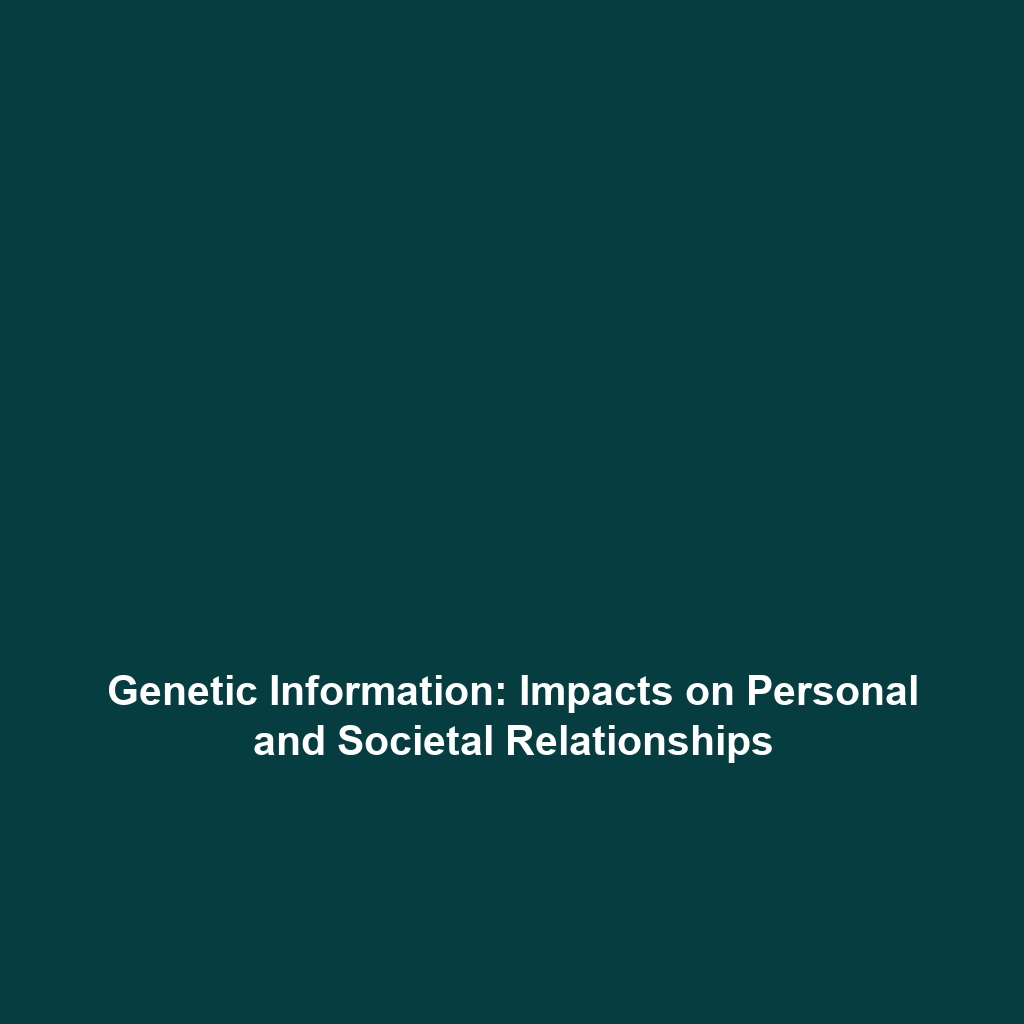Concerns about Genetic Information and Relationships in the Human Genome Project
Introduction
The deciphering of the human genome through the Human Genome Project has unveiled profound insights into our genetic makeup. However, it has also raised significant concerns about how genetic information could affect personal, familial, and societal relationships. This issue is pivotal in understanding the implications of genetic data, from potential discrimination to familial discord, providing a broader context for the implications of this monumental scientific endeavor.
Key Concepts
Understanding Genetic Information
Genetic information encompasses the data derived from an individual’s DNA, which can reveal predispositions to certain diseases, traits, and even behaviors. Within the scope of the Human Genome Project, these insights can significantly influence how individuals relate to one another.
Impacts on Personal Relationships
Knowing one’s genetic predispositions may affect personal relationships, potentially leading to anxiety or altered dynamics between partners or family members. The concerns about how genetic information impacts intimate relationships, including decisions on marriage and procreation, are deeply nuanced.
Familial Implications
Familial relationships may also be strained due to the revelations that genetic testing can provide. Concepts like paternity, hereditary diseases, and genetic compatibility can challenge traditional family structures.
Societal Considerations
At the societal level, there are broader implications related to genetic discrimination. Employers and insurance companies may misuse genetic data, leading to ethical dilemmas that society must confront.
Applications and Real-World Uses
The applications of understanding concerns about genetic information are diverse and far-reaching. Here are some key uses:
- In Healthcare: Genetic testing informs treatment options and preventive measures.
- In Counseling: Genetic counselors help families navigate complex genetic information.
- In Law: Legal frameworks are evolving to protect against genetic discrimination.
Current Challenges
As we delve deeper into the promise of the Human Genome Project, several challenges persist:
- Privacy Concerns: There are ongoing fears over how genetic data is stored and shared.
- Cost of Testing: High costs can limit accessibility for many individuals.
- Societal Misunderstanding: Lack of public education about genetics can lead to misinformation.
Future Research and Innovations
Looking ahead, there are exciting developments on the horizon regarding concerns about genetic information. Innovations in gene editing technologies, such as CRISPR, pave the way for profound advancements in how we might manage genetic disorders and rethink familial relationships. Ongoing research aims to develop frameworks for ethical genetic testing, ensuring that societal concerns are addressed.
Conclusion
In conclusion, the concerns about how genetic information impacts personal, familial, and societal relationships are critically linked to the findings of the Human Genome Project. As we continue to unravel the complexities of our genetic codes, it is essential for society to engage in conversations that address these concerns ethically and responsibly. To learn more about the implications of genetic research and its ongoing developments, visit our research in genetics page.





